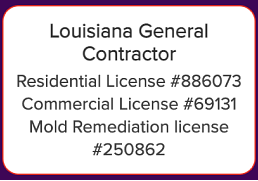Blog
An Easy Way to Improve Energy Efficiency
Discovering mold in your home is far from a pleasant surprise. Mold not only damages your property but can also pose serious health risks to you and your family. It thrives in damp environments and can spread quickly if not addressed promptly. Understanding the steps to take immediately after finding mold is crucial in mitigating its impact, preserving your home's integrity, and protecting your health.

You've switched to energy-efficient lightbulbs, installed Energy Star® appliances and sealed drafty windows and doors, all in the name of making your home more energy efficient. But did you know there's one often overlooked area that has a huge impact on how much energy your home uses? Next time you're near your furnace or air handling unit—the large metal box that pushes air throughout your home's air ducts—take a minute to give some much-needed attention to this important part of your home's energy efficiency equation.
What You Need to Know about Coils
Your home's air handling unit heats, cools and circulates air in your home. The unit sucks air in, and—depending on whether you are heating or cooling your home—blows the air over hot or cold coils before blowing the air out into your home. Dirt and dust can build up on these coils, not only making it difficult for them to warm or cool properly, but also making it harder for the air to pass through them. As a result, the air handling unit has to work harder to push the air out into your home, requiring more energy and adding to your energy bill. In fact, systems with dirty coils use up to 37 percent more energy to cool the home. And, all that added work wears out the system faster than normal, which could lead to needing to replace the unit sooner than if it was properly maintained.
Save Money with Regular Maintenance
Staying on top of keeping your air handling unit clean and running efficiently doesn't just control energy costs. It also helps avoid even more expensive repairs down the line. How often a system needs to be cleaned will vary, so set a schedule and stick to it. While you may be able to help keep your system in check by regularly replacing filters, call a professional to examine and clean the system.


